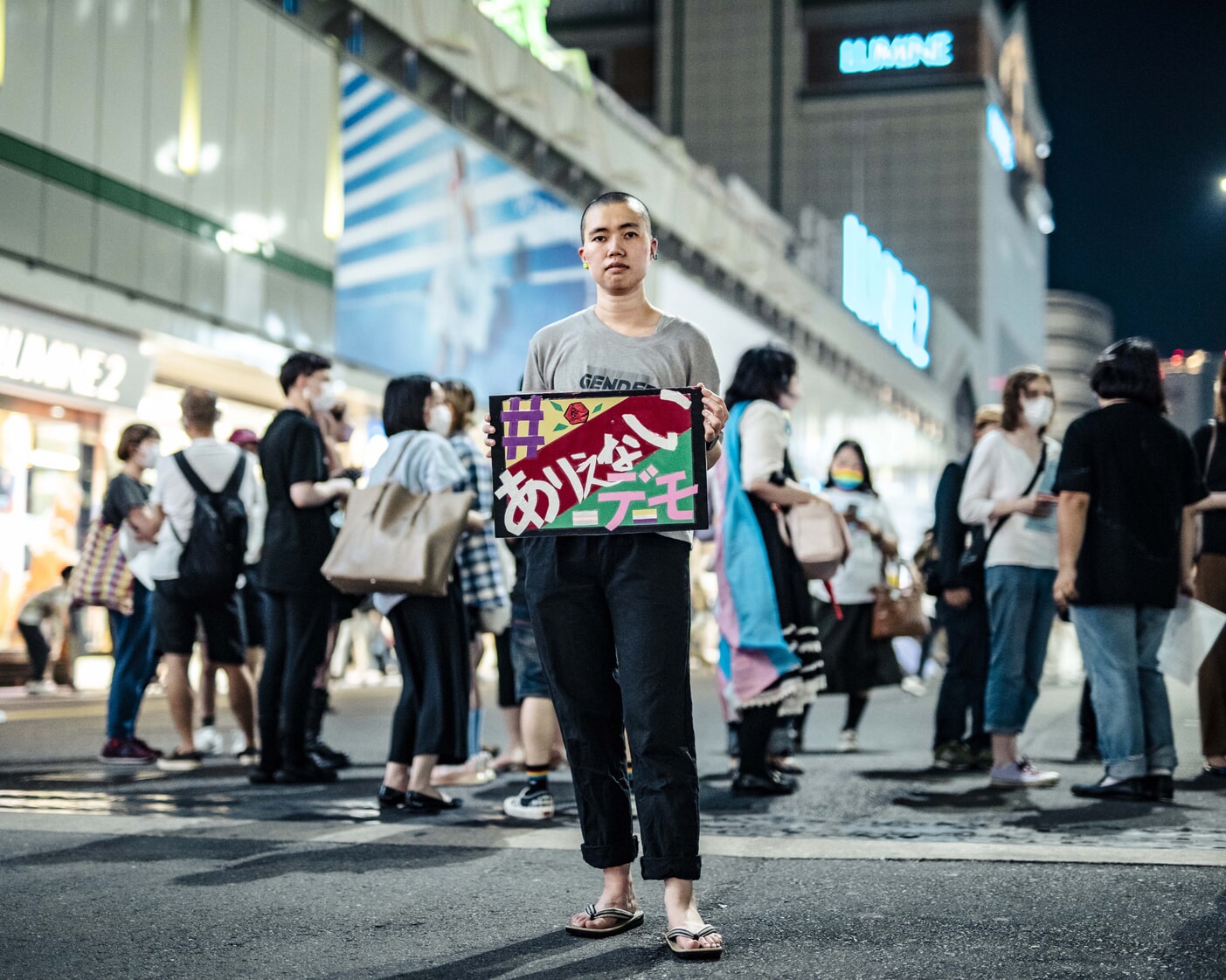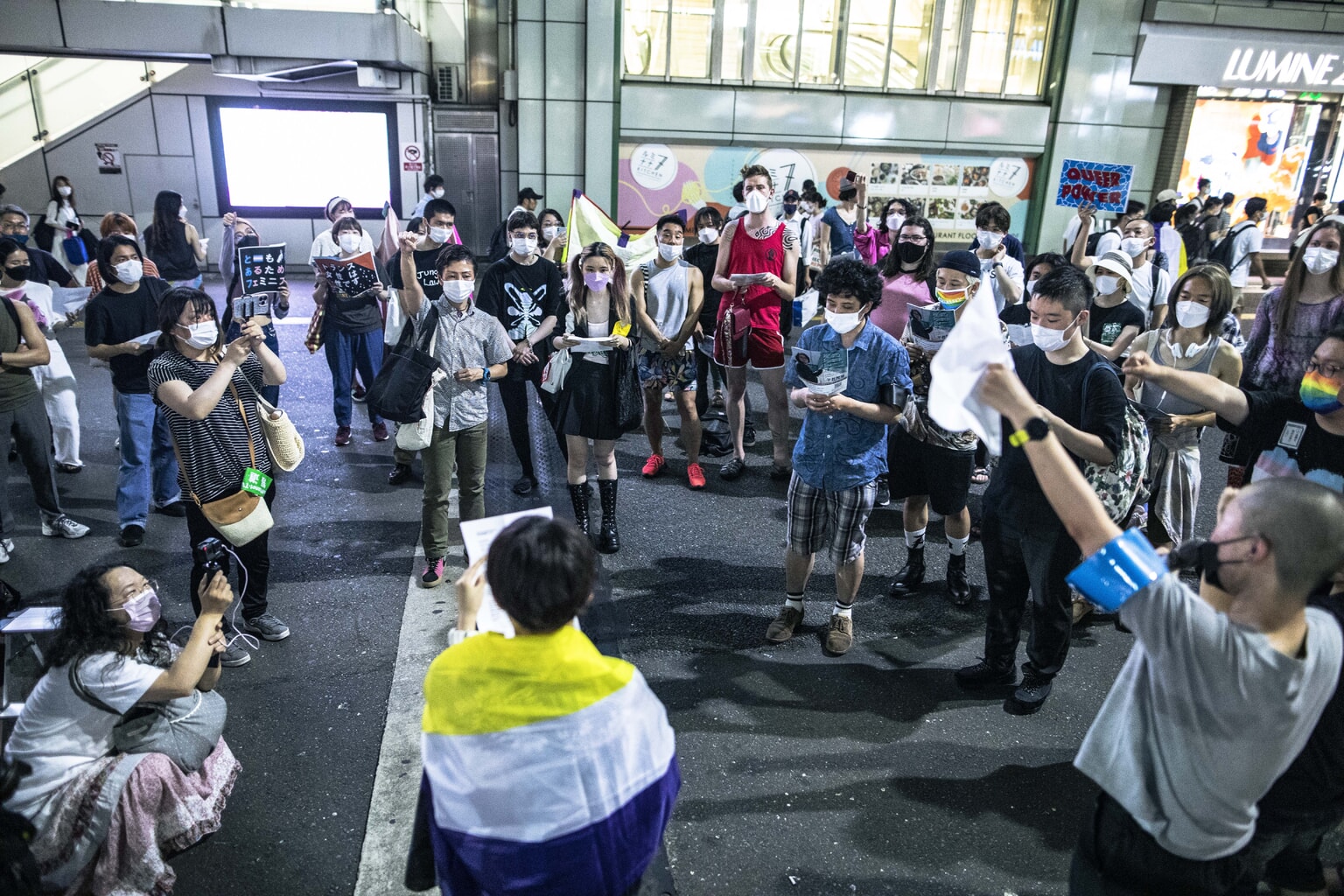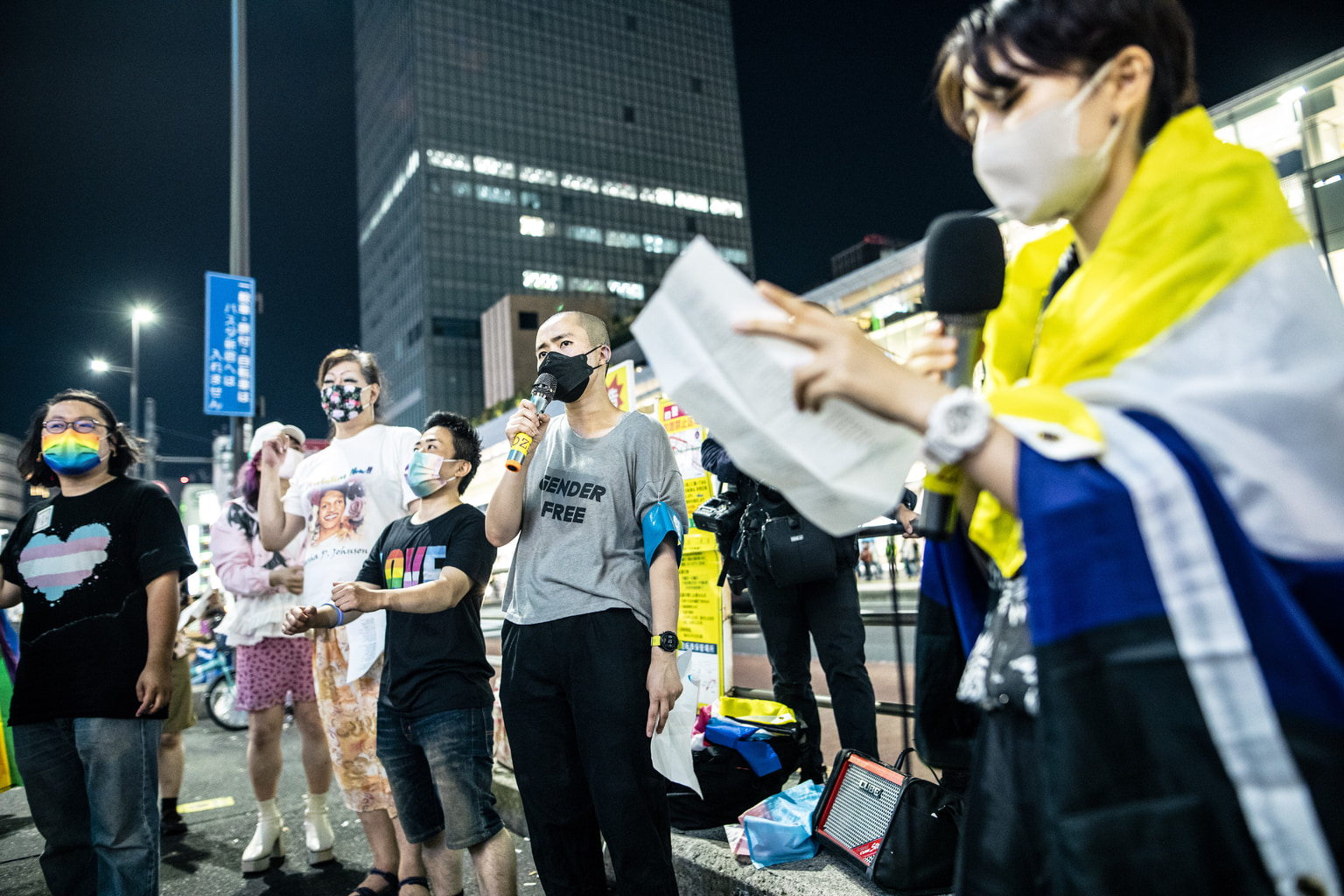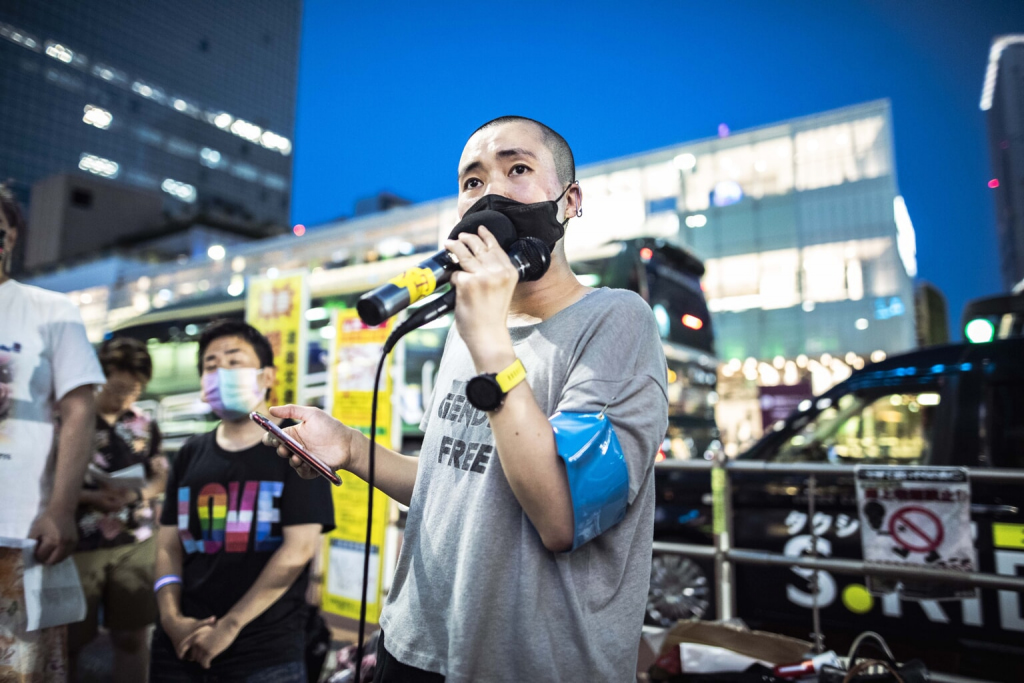“They don’t want you to have children.”
“They want you to undergo surgery.”
“They want you to break up with your spouse.”
“It’s unbelievable, it’s unbelievable.”
Non-binary activist Tanomi Yamamura began the Arienai Demonstration in December 2021 after Japan’s Supreme Court upheld a ruling that meant transgender people with children could not legally transition.
“One of my friends was heavily affected by the law,” Yamamura says. “She’s a trans woman, married and has little kids. She worked for a company with poor LGBTQ policies while also undergoing hormone replacement therapy. She was depressed, worrying she’d lose her job once her appearance changed, but without changing her gender marker she couldn’t seek a new job.
“I felt so angry,” continues Yamamura. “Not really for myself because I didn’t care about my own gender markers at the time. But because it was my friend, I had that emotional capacity. I tweeted, ‘This ruling is arienai.’ It’s unbelievable. Then I made a sign and stood outside the Supreme Court. That was the first Arienai Demonstration.”

Tanomi Yamamura
In the year since the Supreme Court’s ruling, Arienai Demo has made waves with its bi-monthly rallies, outside the court entrance and outside Shinjuku Station. Organized by Yamamura and a handful of other LGBTQ activists and friends, it seeks to bring visibility to Japan’s transgender community and to challenge the laws surrounding gender markers and legal transitioning.
Oppressive Legislation
Among G7 nations, Japan has one of the most restrictive policies surrounding transgender rights. It’s centered on the koseki, or family register system. Trans people gained the right to legally transition in 2004, under the controversial “Gender Identity Disorder Special Cases Act,” but it’s not easy.
To qualify, applicants must be legal adults. Even with a guardian’s support, a minor cannot change their markers. Applicants must undergo a gender identity disorder diagnosis from a psychiatrist, a practice condemned by the World Health Organization (WHO) to de-pathologize trans and gender diverse lives. An applicant must be single. An applicant must be surgically sterilized, an invasive and dangerous procedure for both trans men and trans women. And finally, an applicant must have no minor-age children, the stipulation which barred Yamamura’s friend from legally transitioning.
These requirements have drawn fire from numerous human rights watch groups. They hinge on the premise that gender change is disruptive to families and societies — thus outright prohibiting people with spouses and children from making the change.
Without legal validation for their identities, trans individuals face an uncertain world. Japan’s government has passed few laws protecting LGBTQ people. Presenting as a different gender from their IDs can lead to discrimination in job hunts, procuring housing, workplaces, gender-segregated facilities and even police encounters.
“Imagine,” says Yamamura, “showing up to a job interview presenting as a woman, but they see your original gender markers on your ID.” With such risks, many remain hidden.
According to Arienai Demo’s Twitter and its sources, of the estimated 240,000 trans people in Japan, only about 10,000 have changed their legal gender markers since the 2004 law was passed.

Grassroots Opposition
June 26 and July 16 marked Arienai Demo’s largest protests since the movement’s beginning. Gathered outside Shinjuku Station’s south exit beneath trans and rainbow flags and banners, Yamamura’s rally numbered over 70 people, supported by politicians and queer activists from all over Japan. June was a special date for Arienai Demo’s efforts, coinciding with global Pride Month as well as the campaign cycle for the House of Councillors, while July’s protest landed two days after International Non-Binary People’s Day.
Activists, allies and politicians such as Tomoya Asanuma, Tomato Hatakeno and Shunichi Murata gave speeches — urgent and convincing narratives on the lives of trans people — before leading the crowd in a protest chant:
“Change the law while we’re still alive. Change the health system while we’re still alive. Stop the discrimination while we’re still alive… The government decides my gender? Unbelievable.”
The next Arienai Demo is planned for October 1 outside Shinjuku Station’s south exit.
Additionally, Yamamura hopes to expand Arienai Demo’s outreach by publishing a booklet of speeches from the year’s demonstrations. Archives of the speeches are available on Youtube and Instagram.

Fighting for the Future
Yamamura’s other goal is to organize study groups with lawyers and legal scholars, aiming to challenge the current laws.
“Gender self-determination is a basic human right,” Yamamura says. “I want Arienai Demo to create a super-team to achieve that right without compromise. But our protest is still in its infancy and there are so many more things I want to do.”
Improving the situation of transgender people in Japan will require a holistic, multi-faceted movement. There are day-to-day battles, like improving access to public facilities such as all-gender bathrooms, cultural struggles like fighting transphobia in pop culture and media, and finally the big picture effort to change the law itself.
“These are fronts we need to pursue in parallel,” Yamamura says. “Japan’s Constitution says we have to protect human rights. If the law contradicts that, then we have to fix it.”
Follow Arienai Demo on Twitter for updates.
Photos by Shinta Yabe









